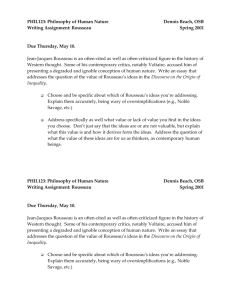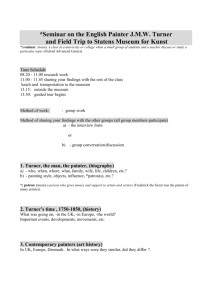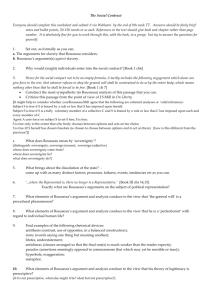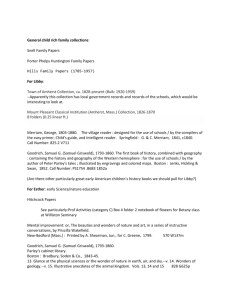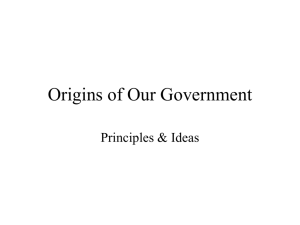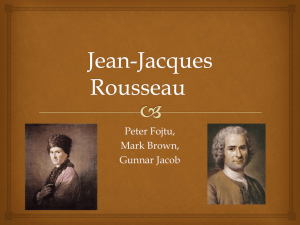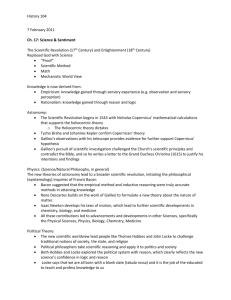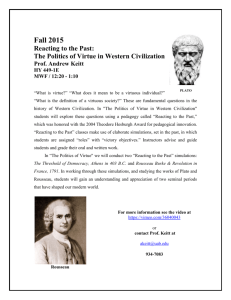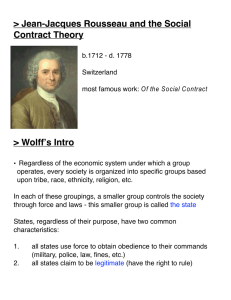rousseau review sheet!!!!
advertisement
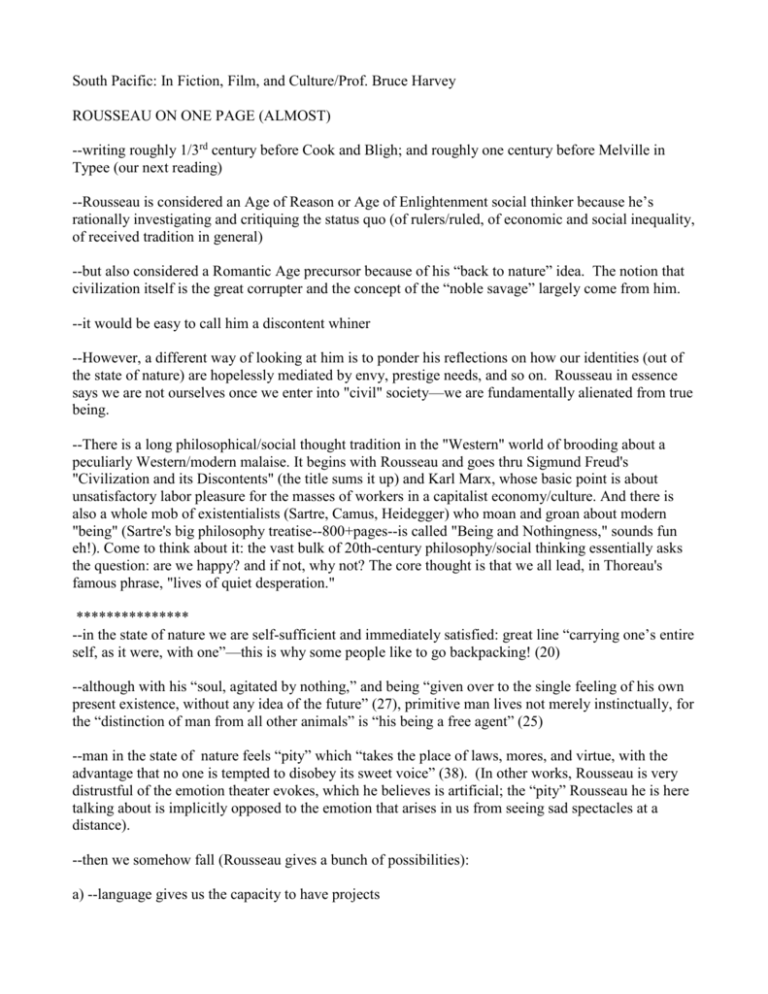
South Pacific: In Fiction, Film, and Culture/Prof. Bruce Harvey ROUSSEAU ON ONE PAGE (ALMOST) --writing roughly 1/3rd century before Cook and Bligh; and roughly one century before Melville in Typee (our next reading) --Rousseau is considered an Age of Reason or Age of Enlightenment social thinker because he’s rationally investigating and critiquing the status quo (of rulers/ruled, of economic and social inequality, of received tradition in general) --but also considered a Romantic Age precursor because of his “back to nature” idea. The notion that civilization itself is the great corrupter and the concept of the “noble savage” largely come from him. --it would be easy to call him a discontent whiner --However, a different way of looking at him is to ponder his reflections on how our identities (out of the state of nature) are hopelessly mediated by envy, prestige needs, and so on. Rousseau in essence says we are not ourselves once we enter into "civil" society—we are fundamentally alienated from true being. --There is a long philosophical/social thought tradition in the "Western" world of brooding about a peculiarly Western/modern malaise. It begins with Rousseau and goes thru Sigmund Freud's "Civilization and its Discontents" (the title sums it up) and Karl Marx, whose basic point is about unsatisfactory labor pleasure for the masses of workers in a capitalist economy/culture. And there is also a whole mob of existentialists (Sartre, Camus, Heidegger) who moan and groan about modern "being" (Sartre's big philosophy treatise--800+pages--is called "Being and Nothingness," sounds fun eh!). Come to think about it: the vast bulk of 20th-century philosophy/social thinking essentially asks the question: are we happy? and if not, why not? The core thought is that we all lead, in Thoreau's famous phrase, "lives of quiet desperation." *************** --in the state of nature we are self-sufficient and immediately satisfied: great line “carrying one’s entire self, as it were, with one”—this is why some people like to go backpacking! (20) --although with his “soul, agitated by nothing,” and being “given over to the single feeling of his own present existence, without any idea of the future” (27), primitive man lives not merely instinctually, for the “distinction of man from all other animals” is “his being a free agent” (25) --man in the state of nature feels “pity” which “takes the place of laws, mores, and virtue, with the advantage that no one is tempted to disobey its sweet voice” (38). (In other works, Rousseau is very distrustful of the emotion theater evokes, which he believes is artificial; the “pity” Rousseau he is here talking about is implicitly opposed to the emotion that arises in us from seeing sad spectacles at a distance). --then we somehow fall (Rousseau gives a bunch of possibilities): a) --language gives us the capacity to have projects b) --fall into inequality by the acquisition of property (44) and “fresh needs” (54) c)--we become so other directed (envy/prestige) that we lose any sense of native, natural, authentic desires/goals (“public esteem” becomes a ”value” (49)--“the savage lives in himself; the man accustomed to the ways of society is always outside himself and knows how to live only in the opinions of others” (70) d) --or we want more and more luxury/comfort to the point of satiation without joy (48) or inequity of property possession: some consume more and others less --we no longer live in the moment (what I refer to as all the gears in the head turning anxiously about the future, etc); and are no longer self-contained (rather than grabbing the apple from the tree, we must buy it, diced and packaged, etc., from Publix, requiring money, in turn requiring a job and all the other complexities and dependencies of our modern existence) --at times it seems anthropological, as if Rousseau really admired some hypothetical "cave man" prehistorical lifestyle, but in fact he is only using this speculatively relatively happy "state of nature" to critique a fall into civilization or what he calls the social state: --could say the same of Typee, which is more anthropologically factual: Melville is not so much enchanted by Edenic, pastoral society of Typees, as disenchanted by coercive laws --and clearly the "savage" or "natural" state (as Rousseau describes it) could never really exist. When could humans live and not require joint labor, language, etc.? Humankind has "fallen" from page one, as it were, of human history.
